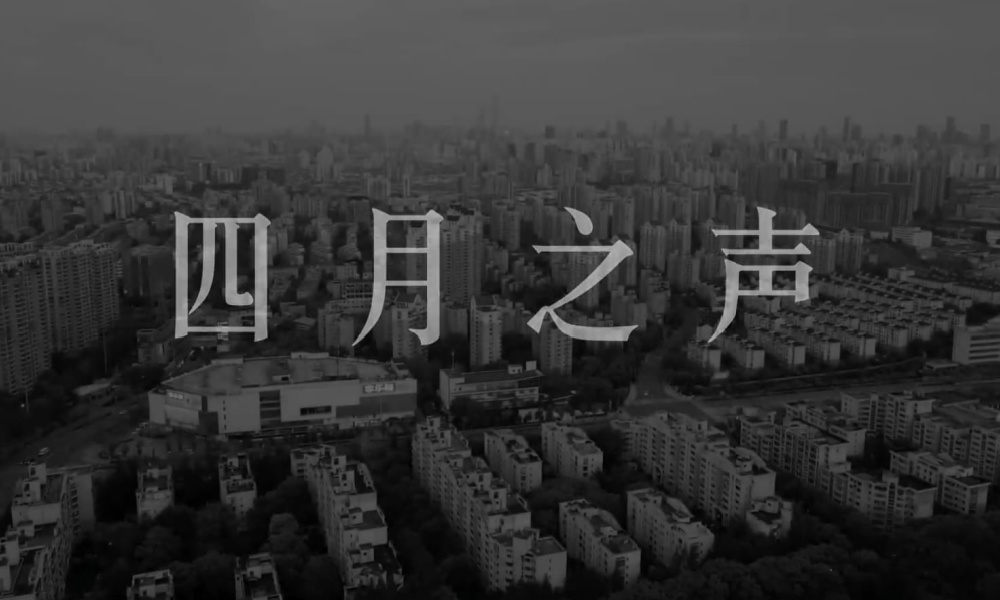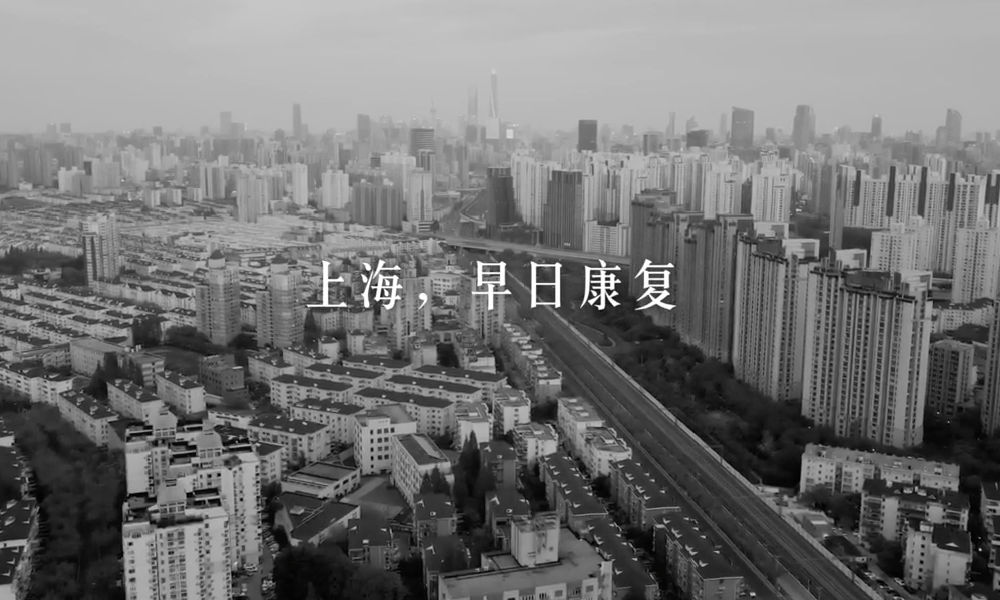On Friday, April 22, a video was shared on Chinese social media and when the evening fell, it suddenly was on everybody’s smartphone screen.
Voices of April (四月之声) is a compilation of real audio snippets from conversations recorded in Shanghai throughout April, providing an emotional and heart-wrenching account of what residents in Shanghai have gone through since the Covid crisis started in their city.
By early Saturday morning, Beijing time, the Voices of April (四月之声) video had seeped into every corner of WeChat. Not long after, it was gone.
The video, made by a person named ‘Cary’, first seemed to have appeared online on Friday with the following message:
“One month after the outbreak of the epidemic in Shanghai, I’ve seen too many online voices coming by which then soon disappeared. Over time, I’ve become somewhat desensitized, but some things shouldn’t have happened. Since they did, they shouldn’t be forgotten. Too many of our compatriots have suffered in ways that could have been avoided. I made a video, as objective and realistic as possible, as a record to remember the voices of April, and hope that all of them will pull through.”
The video in question, embedded below, is almost six minutes long.
It starts its narrative on March 15, just a day before Shanghai introduced its so-called “grid screening” strategy – meaning that every resident in a city Covid key area would do two nucleic acid tests within 48 hours. That day, the total amount of Covid cases since the onset of the outbreak in early March was 1156. The audio is real – as all snippets are – and was recorded during an official Shanghai Epidemic Prevention and Control news conference.
“Right now, Shanghai has no lockdown, and there is no need for a lockdown,” the spokesperson can be heard saying, while the video shows aerial footage of Shanghai city.
The video then jumps to March 26, when the total number of cases since the beginning of the outbreak had risen to 12,527 (asymptomatic and symptomatic combined), the daily new added cases being 2676.
Still, Shanghai officials can be heard saying that there will ‘never be a lockdown’ in the city, suggesting that Shanghai is not just important for Shanghai, it is important for the economy of the entire country.
The video then shows its title page: Voices of April.

The video, showing aerial footage of Shanghai for the entire six minutes, then continues with snippets of audio fragments starting at the beginning of April, with worried residents calling local authorities to voice their concerns about their personal situation after the sudden announcement of a phased lockdown in Shanghai on March 27.
Through dozens of audio snippets, we hear the voices of residents, delivery drivers, community workers, parents, children, Covid patients, pet owners, volunteers, and more.
In doing so, through the words of those who witnessed it, Voices of April raises the issues that so many have been concerned about over the past 25 days or more. Shanghai residents going hungry; food supplies going to waste due to mismanagement and failing logistics; parents and children being separated in quarantine facilities; people unsuccessfully trying to get urgent care for a medical emergency in their family; cancer patients being unable to return to their homes after getting chemotherapy at the hospital; Covid patients arriving at centralized quarantine locations that have no supplies nor beds; a desperate mother who finds herself calling out to neighbors to get medicine for her sick child in the middle of the night; pet owners in tears over their dog being killed by anti-epidemic workers.
“The virus is not killing people, the hunger is,” one voice can be heard saying.
“Distribute supplies! Distribute supplies! Distribute supplies!” a group of people can be heard shouting.
Through the audio snippets, it becomes clear that it’s not just residents who have been suffering throughout this whole ordeal – it’s the entire city, including its volunteers and community workers who are also helpless in helping others due to the policies in place.
The video ends with a black and white screen showing the characters “上海, 早日康复” (Shànghǎi, zǎorì kāngfù): “Shanghai, get well soon.”

Not long after the video went viral, Wechat and Weibo users discovered they were no longer able to forward the file, and soon all links to the video ended up leading to a ‘404’ deleted message.
The censorship seemingly only added fuel to fire. “[You want] war? War it is!”, some said, with others posting images protesting the censorship: “You can’t censor the unity of the people of Shanghai!”
Straight away, netizens started coming up with various alternative ways to refer to the title of the video to circumvent censorship, suggesting that there can never be a ‘zero policy’ when it comes to silencing people’s voices.
Nevertheless, alternative hashtags and phrases were also soon taken offline, such as the hashtag “The Voices of Shanghai” (#上海之声#).
“You can’t treat everything that’s being deleted as something that never happened,” one Weibo user wrote. Another commenter said: “What are you deleting? For what? What is so terrible for us to know that you’ve come so quickly to censor it?”
“It’s just a record of actual events, what good does it do to censor it? Originally, we were just sad, not angry. Now it’s a revolt of the people. A cover-up only makes matters worse.”
The only time during China’s Covid era when there was an online outpouring of anger comparable to this instance is probably when Li Wenliang passed away – the doctor who was initially silenced when he tried to warn others about the outbreak of the novel coronavirus (read more here). His death, and the censorship surrounding it, also led millions of people to vent their frustrations online. The censorship, as in this case, only added fuel to the fire.
One word that many people commenting on the Voices of April video use after seeing it is ‘powerlessness’: “I watched the Voices of April. Putting all of the powerlessness together, this world seems even more helpless.”
“Tonight is the night of the deleted voices [404之声],” one Weibo user wrote.
For context:
– Growing frustrations during early outbreak of the city’s Covid crisis
– Children and parents being separated for isolation
– Pet dog killed by anti-epidemic worker
– Deplorable conditions at quarantine locations
For more articles on the Covid-19 topics on Chinese social media, check here.
By Manya Koetse, with contributions by Miranda Barnes
Get the story behind the hashtag. Subscribe to What’s on Weibo here to receive our weekly newsletter and get access to our latest articles:
Spotted a mistake or want to add something? Please let us know in comments below or email us. First-time commenters, please be patient – we will have to manually approve your comment before it appears.
©2022 Whatsonweibo. All rights reserved. Do not reproduce our content without permission – you can contact us at info@whatsonweibo.com.
The post The Voices of April – The Short Online Life of a Shanghai Protest Video appeared first on What's on Weibo.